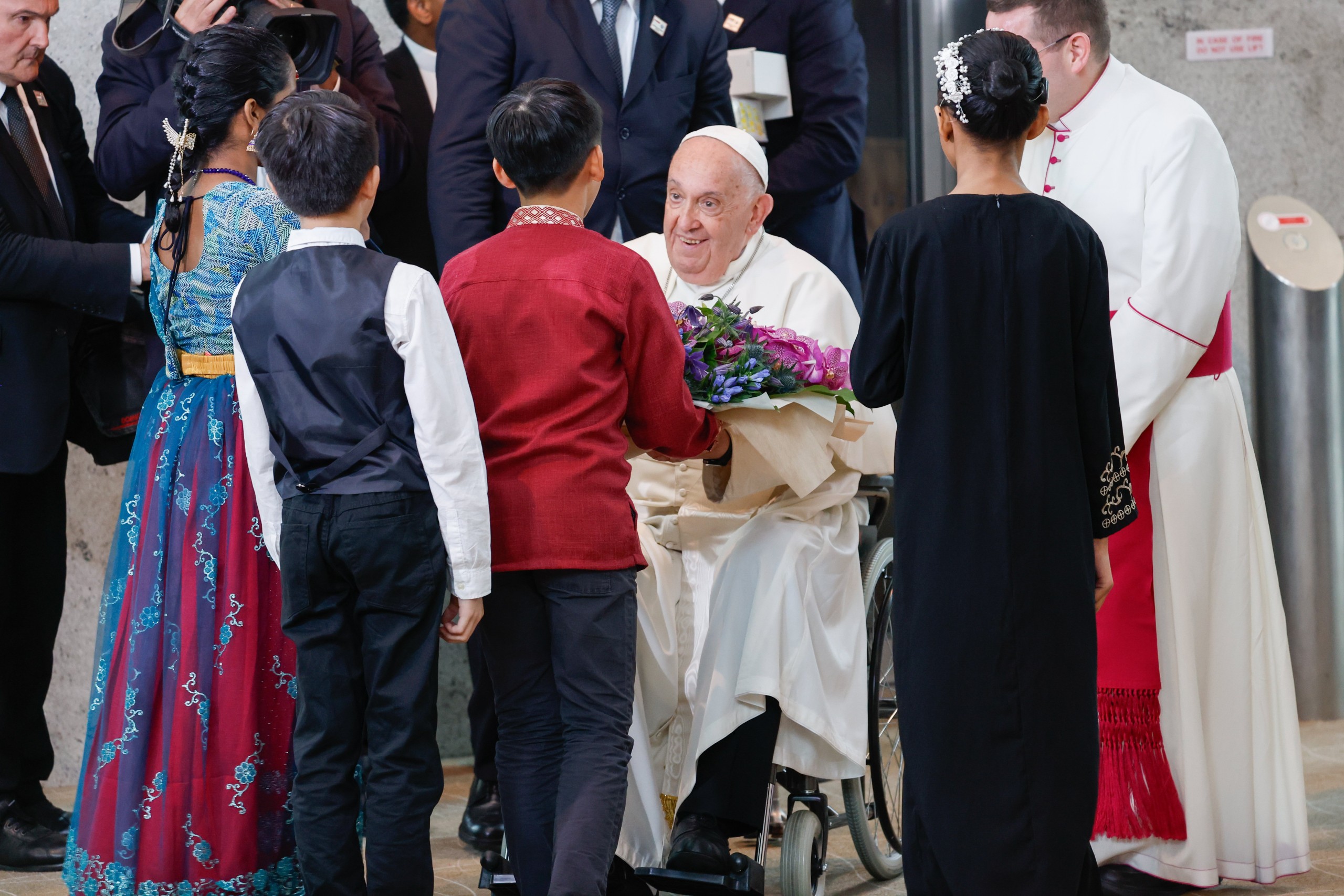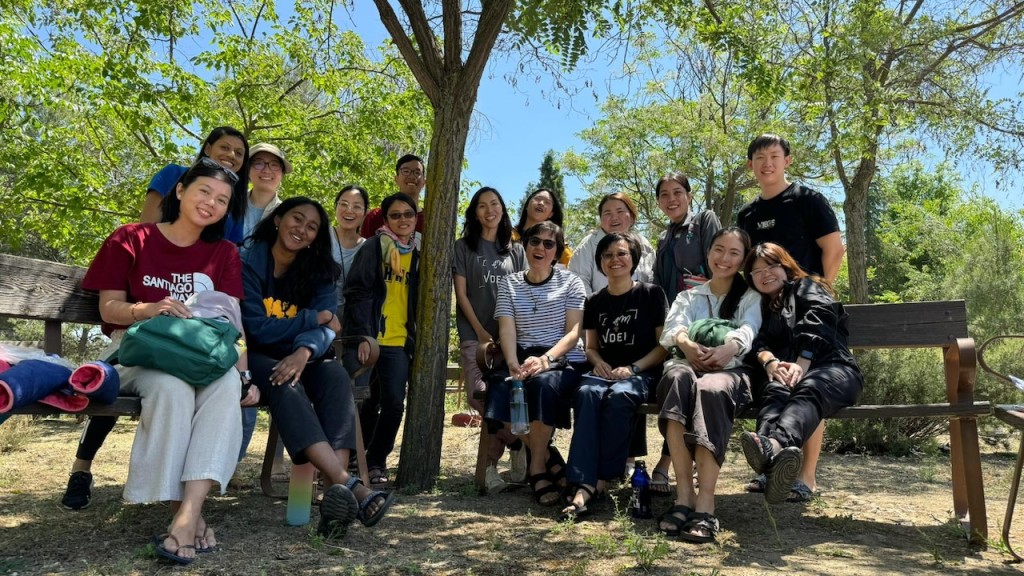
Pope Francis touched down in Singapore on September 11, marking the final stop of his 12-day Apostolic Journey through Asia and Oceania. Having spent the past two days in Timor-Leste, one of the world’s poorest and youngest nations, the transition to Singapore—a country known for its wealth and one of the world’s oldest populations—highlighted the pope’s commitment to inclusivity and his mission to reach people at every corner of the globe.
The pope, accompanied by his entourage and 75 journalists, flew in on Aero Dili, Timor-Leste’s national airline, which has just a single plane. His arrival in Singapore was a symbolic culmination of a trip that underscored the contrast between countries at different ends of the economic and social spectrum. In Timor-Leste, the median age is 20, while in Singapore, it’s nearly double that at 38.9. Singapore, ranked the fourth richest nation by GDP, stands in sharp contrast to Timor-Leste, which ranks 172nd.
Upon landing at Changi Airport, Pope Francis was greeted by Edward Tong, Singapore’s Minister for Culture, Community, and Youth, alongside four children who performed a traditional dance and presented flowers to the Holy Father. One moment of light-heartedness came when the pope met a young boy named Francis, prompting the pope to laugh heartily. Such moments, though simple, reflect the pope’s desire to connect personally with those he meets, regardless of the setting.
Three children do a little dance at informal welcome for #PopeFrancis at the Singapore airport pic.twitter.com/0emRTYobV1
— Cindy Wooden (@Cindy_Wooden) September 11, 2024
After a brief meeting with Tong, Pope Francis embarked on a scenic tour of the airport’s gardens, navigating the paths in an electric golf cart amid light rain. Hundreds of people gathered to greet him, eagerly anticipating the start of his activities in Singapore, which will include a mass at the National Stadium and an interreligious dialogue at Catholic Junior College.
The Mission of the Church in Singapore
Although Catholics make up only 3% of Singapore’s population, their presence is deeply felt across the country, especially in the fields of education and social welfare. As Monika Tjhin Punan, a missionary from the Verbum Dei Fraternity, explained, “Although we are a minority, our presence is appreciated in the country.” Tjhin, who was born in Singapore and is of Chinese descent, noted that the Catholic Church’s efforts in education, interreligious dialogue, and social work have made a significant impact on the multicultural society.

Missionary Monika Tjhin Punan, a member of the Verbum Dei, at the center, wearing a white and blue stripped shirt, with a youth group. (Courtesy TPMS Spain)
The Church in Singapore manages 54 educational institutions, serving over 46,000 students, and runs 33 welfare institutions, including hospitals, orphanages, and homes for the elderly. These contributions continue to be vital in fostering a sense of community and service in a nation where the pressure to excel is intense. As Verbum Dei missionary Pilar Rodríguez said, “In such a fast-paced and demanding society, the Catholic faith offers a message of hope and relief, emphasizing a God who is close to the vulnerable.”
The Archdiocese of Singapore, one of the 1,126 mission territories supported by The Pontifical Mission Societies, benefits from this global network of solidarity. Through the generosity of Catholics worldwide, Singapore’s archdiocese receives $32,000 annually to support daily operational needs. These funds, collected through initiatives such as World Mission Sunday (October 20th), ensure that the Church remains an active force for good, serving both Catholics and non-Catholics alike in one of the most economically prosperous nations in the world.
A History of Missionaries and a Legacy of Faith
Pope Francis’ visit to Singapore comes at a time when the Church is reflecting on its 200-year presence in the country. The first Catholic missionary, St. Laurent Marie Joseph Imbert, arrived in 1821, only two years after Sir Stamford Raffles founded modern Singapore. Although St. Imbert would later be martyred in Korea, his legacy, along with that of the missionaries who followed, has been immortalized in the Church’s robust presence in Singapore today.
The Archdiocese of Singapore, though small, now boasts its own missionaries, sending 84 of its members to serve in 21 countries. This vibrant community, strengthened by its commitment to evangelization and service, is a living testament to the power of missionary work, which has long been supported by The Pontifical Mission Societies.
As Pope Francis concludes his journey in Singapore, he leaves behind a powerful message of unity—reminding the faithful that the Church’s mission transcends borders, wealth, and age. Whether in the poorest or the wealthiest countries, the call to serve remains the same: to bring Christ’s love to the peripheries of society and to stand in solidarity with the vulnerable, the forgotten, and the marginalized.


